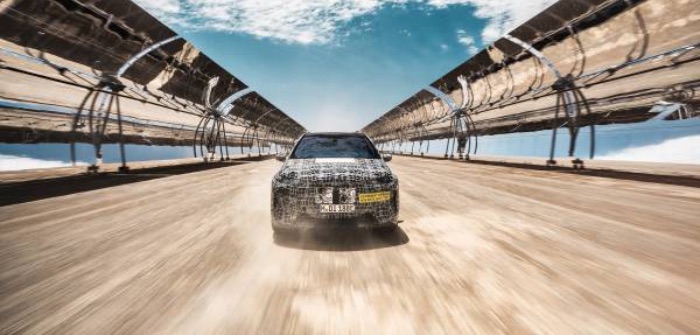Extensive testing has been carried out by BMW of its all-wheel drive, fully electric iNext in the demanding and unpredictable climate of the Kalahari Desert, South Africa.
Over thousands of kilometers in the desert, the car’s interior, exterior and drivetrain were all put to the test to prove the safety, reliability and durability of the new platform. These included subjecting the vehicle’s bodywork to extended high-heat tests, then later cooling it down to ensure the capability of the electric system and the strength of interior materials in terms of cracking and creaking under vast changes in temperature.
Alongside this, further digitized systems, the electric motor and an integrated cooling system concept for the high-voltage battery were all analyzed in the desert.
Experienced designers and onboard equipment monitored the vehicle’s reactions as it was put through high-speed operations, stop and go situations and other everyday driving scenarios on a series of road surfaces including sand, gravel and pebble. The testing of the intelligent four-wheel drive and suspension components under these extreme conditions ensures future production models are not impaired under exceptional circumstances.
The sports activity vehicle’s road to series maturity will include more analysis; iNext protypes will be subject to virtual timelapse stresses similar to that of an entire service life, and further real-world tests at proving grounds such as the Nürburgring Nordschleife and BMW’s Winter Center in Sweden.
Production of the BMW iNext will start at the manufacturer’s Dingolfing plant in 2021.


